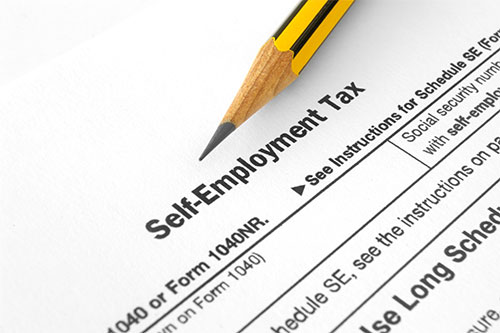Understanding Federal Self-Employment Tax
Federal self-employment tax is not a difficult concept, but it is a critical one if you plan to own and operate a business. This is even if it is just a home-based business. The most important thing to remember about federal self-employment tax is that it is with you as long as you are self employed and making an income.
Even if you reach 65+ in age and draw social security income, you will pay federal self-employment tax if you are making a profit in a business. Federal self-employment tax is composed of two parts, Social Security and Medicare. So, even if you are old enough and drawing Social Security, you still must pay into the funds if you are self-employed and making money.
How Much is the Federal Self-employment Tax?
In 2021, the tax is made up of 12.3% for Social Security and 2.9% for Medicarei. This total of 15.3% is paid on profit from your business. The difference between this and payroll taxes is that those are generally split between the employer and the employee. This would be 7.65% for the employer’s side and the 7.65% withheld from the employee’s wages.
In 2021, the first $142,800 of your combined wages, tips, and net earnings is subject to the Social Security and the 2.9% parts of self-employment taxii. An additional Medicare tax rate of 0.9 % applies to wages, compensation, and self-employment income above a threshold amount received in taxable years beginning after Dec. 31, 2012.
Federal Self-employment Tax Deduction from Gross Income
From IRS.gov: You can deduct the employer-equivalent portion of your self-employment tax in figuring your adjusted gross income. This deduction only affects your income tax. It does not affect either your net earnings from self-employment or your self-employment tax.
What is Business Income for Federal Self-employment Tax Purposes?
When you are calculating your business income for tax purposes, generally the amount of income after all legitimate expense and other business related deductions is the amount on which the self-employment tax is calculated. More help and info at Taxhive.com.
From the IRS: Generally, your net earnings from self-employment are subject to self-employment tax. If you are self-employed as a sole proprietor or independent contractor, you generally use Schedule C to figure net earnings from self-employment.
Once you realize income from your business in a tax year, you will be required to pay quarterly estimated self-employment taxes based on the previous tax year’s income. As long as you meet the specified amount and paid on-time your quarterly estimated payments in full, you will not be penalized when your income for the current tax year is higher, and you owe additional self-employment taxes.
When you retire and begin to draw Social Security, the amount of your monthly payments will be calculated based on your contributions over time. So, when you are complaining about that annual outlay for Federal self-employment tax, consider it an investment, though at a low rate of return, in your future retirement.
i Self-employment Tax – Nerdwallet.com
ii Self-employment Tax – IRS.gov

